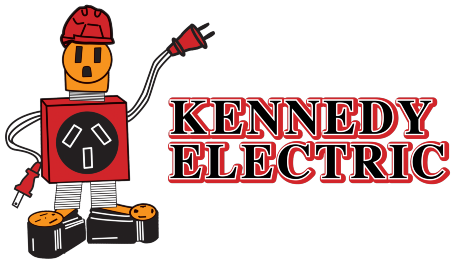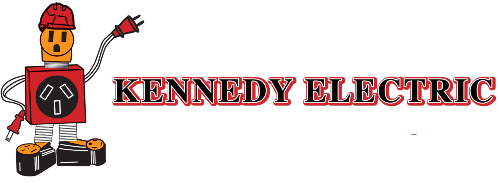Building for the Future with Reliable Electrical Systems
A reliable electrical system doesn’t just make life easier—it keeps everything running safely and efficiently, whether you’re powering a cozy home or a sprawling commercial facility.
You can’t see electricity, but you definitely notice when it stops working. Behind every glowing light bulb, humming appliance, and functioning workspace is a network of wires, panels, breakers, and circuits working quietly in the background. A reliable electrical system doesn’t just make life easier—it keeps everything running safely and efficiently, whether you’re powering a cozy home or a sprawling commercial facility.
Too often, electrical systems are treated like a one-time install instead of what they really are: the foundation of every modern space. A properly designed system adapts to growth, integrates new technology, and performs consistently through everyday use and unexpected surges alike. It’s not just about flipping switches. It’s about building a smarter, safer space from the inside out.
The power of a strong foundation
Every successful building begins with a solid foundation, and the electrical system is a big part of that. Think of it as the silent workhorse—always on, always moving, never asking for applause. When it’s designed and installed correctly by skilled electrical contractors, it supports daily operations without a single flicker or hiccup.
Cut corners, and the system starts to complain. Dim lights, tripped breakers, buzzing panels, and overheating wires aren’t just minor annoyances. They are signs that the system was built for yesterday and is struggling to keep up with today.
A strong foundation means fewer calls for electrical repair and less downtime. It also makes expansion possible when the time comes. A commercial electrician or residential electrician who plans for the future doesn’t just meet your current needs—they build in capacity for what’s next. That could mean extra panel space, additional conduit runs, or designated circuits for anticipated equipment. Long story short: solid planning now prevents major headaches later.
Safety first, always
No matter how impressive a system looks on paper, it needs to be safe in real life. Electrical fires, shocks, and malfunctions are rarely random. More often than not, they’re the result of poor installation, outdated equipment, or neglected maintenance.
Hiring a licensed electrician guarantees that your wiring is installed to meet national and local codes. It also means every connection is tight, every load is calculated, and every safety precaution is baked into the design. Safety isn’t an extra feature—it’s the standard.
Overloaded circuits, exposed wiring, and haphazard installations aren’t just bad for performance—they’re flat-out dangerous. Emergency electricians see the aftermath of neglected systems far too often. Melted panels, scorched outlets, and equipment damage from unchecked surges all point back to one thing: cutting corners in the name of convenience.
Quality installation doesn’t just check the boxes. It builds in layers of protection that work silently in the background. Ground fault circuit interrupters, arc fault protection, properly grounded systems, and surge protection work together to prevent accidents before they happen.
Energy efficiency saves money
Energy efficiency used to be a nice bonus. Today, it’s a requirement for anyone who wants to manage costs and reduce waste. The good news is that modern electrical systems are more efficient than ever—when they’re designed with the right strategy.
Old systems are filled with energy vampires. Outdated lighting, inefficient appliances, and tangled circuits drive up electricity bills with very little to show for it. A residential or commercial electrician helps turn that around by identifying where energy is being lost and recommending upgrades that deliver better results for less power.
LED lighting is a no-brainer. It uses a fraction of the power of traditional incandescent bulbs and lasts years longer. Smart switches and occupancy sensors help eliminate waste by making sure lights are only on when needed. Upgraded panels and circuits distribute energy more evenly and reduce unnecessary heat loss.
And then there’s energy management. Smart panels and monitoring systems give you real-time insights into your energy use. You can track, adjust, and even schedule energy-intensive tasks to run during off-peak hours. Whether you’re a homeowner trying to cut monthly expenses or a business owner managing overhead, energy efficiency pays off fast.
Technology is moving fast—electrical systems should keep up
Gone are the days when “advanced technology” meant a few power strips and a clunky desktop computer. Today’s homes and businesses are smart, connected, and loaded with devices that demand reliable, scalable power. From automation systems and security cameras to electric vehicle chargers and smart thermostats, modern spaces require modern electrical infrastructure.
Trying to integrate these technologies into an outdated system is like asking a dial-up modem to stream high-definition video—it might try, but it’s not going to end well. Without a forward-thinking layout and the proper capacity, adding new technology becomes a series of workarounds rather than smooth upgrades.
A commercial or residential electrician designs systems that support smart technology from day one. That means anticipating data loads, providing enough circuits for specialized equipment, and incorporating flexible wiring strategies for future upgrades. Even if you’re not installing advanced tech today, you’ll thank yourself later for making it easy when the time comes.
The right professional makes all the difference
Not all electricians are created equal, and not all jobs require the same approach. Hiring a skilled electrician means working with someone who takes time to understand your space, goals, and budget—and delivers a system that fits like a glove.
Electrical contractors bring more to the table than just tools and experience. They bring insight into local codes, best practices, and the latest materials and techniques. They spot potential issues before they become problems. And they deliver solutions customized to your space, not pulled from a generic template.
The right professional doesn’t just install equipment. They help you make smart decisions that save money, improve safety, and future-proof your building. Whether it’s deciding how many circuits your workshop needs or mapping out the best locations for outlets and switches, a licensed electrician turns ideas into practical, long-lasting systems.
Regular maintenance is a game-changer
Even the best system needs a little attention now and then. Electrical systems are not “set it and forget it.” Over time, connections loosen, components age, and loads change. That’s where regular maintenance steps in.
Routine inspections catch small issues before they escalate. A residential electrician can identify aging wires, signs of corrosion, or load imbalances that might otherwise go unnoticed. A commercial electrician guarantees your facility continues to meet code and functions efficiently, even as operations grow or shift.
Regular maintenance also reduces downtime and prevents surprise breakdowns. You don’t want to find out a circuit is overloaded the hard way, when a room goes dark during peak hours. A planned inspection helps avoid emergency calls, protect equipment, and extend the life of your system.
Future-proofing starts today
Planning for the future doesn’t require a crystal ball—just a little foresight and the right electrical contractor. As your needs grow, so can your demand for power. Whether it’s integrating solar panels, installing electric vehicle chargers, or adding automated systems, you need infrastructure that can scale without disruption.
Future-proofing starts with smart panel selection, load planning, and strategic circuit distribution. It also means creating room for expansion within the panel and considering how conduit runs and wiring routes can accommodate additional connections later on.
A commercial or residential electrician designs with the long game in mind. That doesn’t mean building an overkill system. It means leaving space and flexibility to grow without costly tear-outs or full rewiring jobs. Planning now saves time, frustration, and money when the next phase of your space takes shape.
Investing in quality pays off
High-quality electrical work isn’t cheap—and it shouldn’t be. But the cost of cutting corners adds up fast. Inferior materials, rushed installations, and short-term thinking lead to repairs, replacements, and reliability issues that cost far more in the long run.
A licensed electrician uses the right materials for the job. That means weatherproof boxes for outdoor connections, proper wire gauges for long runs, and panels with enough capacity to handle peak load. Quality materials paired with skilled installation deliver performance that lasts decades, not just a few seasons.
Upfront investment in professional work means fewer disruptions, longer equipment life, and a safer environment for everyone who lives or works in the space. It’s not about luxury—it’s about reliability. And nothing brings peace of mind like knowing your system is built to stand the test of time.
A smarter, safer, more reliable future
Reliable electrical systems are the unsung champions of modern living. They power everything, support innovation, and provide the backbone for comfort, productivity, and growth. Whether you’re planning a new build, upgrading an old system, or just trying to keep the lights on, quality electrical work is essential.
Choosing the right electrician, investing in smart design, and staying on top of maintenance all add up to a system that’s ready for anything—today, tomorrow, and ten years down the road. Your electrical infrastructure shouldn’t be something you worry about. It should just work.
And when it’s built right, it does.
Kennedy Electric is a reliable full-service electrical company serving residential and commercial customers in Citrus, Hernando, and Pasco Counties. We offer electrical repairs, boat lift wiring, remodels, low voltage lighting, generator hookups, RV power, electrical inspections, fan installation, home lighting, new circuits, panels, and more.


